Personal Development: Getting Hired 101

Fizkes / spiral media / Shutterstock.com
Finding a new job is a challenge, especially in our current world where COVID-19-related job losses and hiring freezes are the norm. To most, it’s a particularly unpleasant challenge any year, but this year, the challenge may seem extra daunting. The reason for this widespread dread is because the job search creates a necessary, but uncomfortable intersection between the business world and who you are as a person. It’s the only time you’re forced to quantify your skills, goals, values and ambitions into the cold format of an Excel spreadsheet.
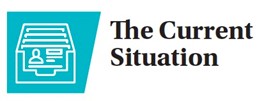
It’s been a very rough year for hiring in the promotional products industry. Thousands of professionals have been furloughed or let go. For the past year, companies have been running very lean in order to compensate for a significant dip in revenue. As revenue returns, those jobs will come back. That’s the positive news. The bad news is that when those jobs come back, there will be a lot of unemployed or underemployed candidates competing for the same opportunity. The competition will be fierce, and you have to be at the top of your game to stand out.
The task of getting a new job is two-fold. First, you need to catch the eye of the hiring manager. Second, you must impress him or her with your resume, interview and references.
––––––––––––––––––––––––––––––––––––––––––––––––––––––––––––––––––––––––––
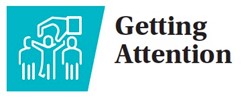
When it comes to getting an interview for a job, there are four activities that will garner 95 percent of your results. Those are networking with industry contacts, applying on career websites, direct outreach to hiring managers and LinkedIn activity.
––––––––––––––––––––––––––––––––––––––––––––––––––––––––––––––––––––––––––

Networking is the catch-all term for making new connections, selling yourself to existing contacts and asking for favors. When searching for a job, networking with industry contacts should be an almost constant activity. Check in with new and old contacts, let them know you’re in the market for a new opportunity and ask a few specific questions:
- “Do you know of any upcoming opportunities in our industry?”
- “Do you have any contacts that would make sense for me to reach out to?”
- “Can you think of anything that I could do to make myself more attractive to hiring managers?”
––––––––––––––––––––––––––––––––––––––––––––––––––––––––––––––––––––––––––

Applying for relevant positions within the promotional products industry via career websites is an important use of your time. Try to identify every promotional product industry company within the geographic range that you’re looking to work in. A free tool to help identify companies with career websites by geographic area is available at promoplacement.com/promogigs-career-hub. Visit every company website to check for career opportunities that are a fit for your background and career goals.
––––––––––––––––––––––––––––––––––––––––––––––––––––––––––––––––––––––––––
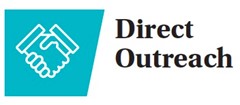
Even in our digital world where most jobs are posted and applied for online, it’s important to create a human connection. When you’ve found a position you wish to apply for, contact the hiring manager to let him or her know to expect your application, and that you’d like to discuss the opportunity further. It’s easy to find emails and phone numbers on company websites or by calling the company’s main number.
––––––––––––––––––––––––––––––––––––––––––––––––––––––––––––––––––––––––––
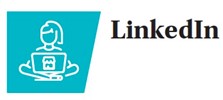
When it comes to your career, LinkedIn is by far the most important social media platform. Being active on LinkedIn is critical because the promotional products industry is very well represented there, and it’s the platform on which industry professionals are most comfortable chatting with new and old connections. It’s also heavily used by human resources and hiring managers to identify candidates for open positions. Below are five simple best practices to ensure that your LinkedIn profile can be found and viewed positively by hiring managers.
- Make it clear that you are seeking a new position.
- Highlight your skills, experience and the quantifiable results of your work.
- Include a professional and appealing profile picture.
- Pepper your profile with keywords that describe your work expertise and career aspirations.
- Make sure the resume you send to the hiring manager and your LinkedIn profile are in sync.
––––––––––––––––––––––––––––––––––––––––––––––––––––––––––––––––––––––––––

You’ve done what you can to catch the eye of hiring managers. Now, it’s time to impress them with what you can bring to their company.
––––––––––––––––––––––––––––––––––––––––––––––––––––––––––––––––––––––––––

During the job search, your resume can be your ticket to a new job or your ticket back to the end of the line. Like most things in the business world, it’s a good idea to stick with proven best practices. Below are several time-tested rules of resume writing that will help you land a first interview.
- Keep the format simple and clean
- Include all pertinent contact information (cell phone number, personal email address, home address and any professional social media links)
- State your career or job objective clearly
- Summarize your experience in four to five sentences and tell the reader what they can expect from you
- Focus on your accomplishments, not your duties
- Customize your resume for each job and each company you apply for
- Own your accomplishments and sell yourself to the reader as the best candidate
––––––––––––––––––––––––––––––––––––––––––––––––––––––––––––––––––––––––––

Most people dread the job interview. Even the thought of an interview is enough to throw some into a tailspin of anxiety. What do you wear? What do you bring? How do you answer the tough questions? Due to the pandemic, you face the added challenge of getting your personality to shine through the computer screen, as most interviews are still taking place via video conference.
Here are some things you can do to prepare yourself for the interview.
––––––––––––––––––––––––––––––––––––––––––––––––––––––––––––––––––––––––––
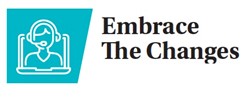
The pandemic has changed a lot of things about how companies bring on new people. For example, the first few interviews are certain to be via video conference. In most cases, there will be an in-person interview before the hiring decision is made, but some companies are moving away from in-person interviews altogether. Another by-product of the pandemic is that promotional product companies are now much more open to hiring remote employees. In 2020, most promotional product company employees were forced to work from home. During that time, employers and managers found that this was a workable and lower-overhead business model. Moving ahead, remote work will open up opportunities for employment that would traditionally not be feasible due to geography.
––––––––––––––––––––––––––––––––––––––––––––––––––––––––––––––––––––––––––
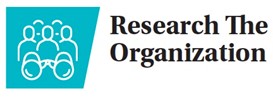
The very first thing you want to do in preparation is to research the company you will be interviewing with. Check out the company’s website. Read the “About Us” section and get a feel for who they are, what they are about and when they were founded. Find a fact that speaks to you that you can slip into the interview conversation. The same goes for researching the hiring manager you’ll be speaking with.
Talk to someone who already works at the company or find someone on LinkedIn who is currently working in a position similar to the one you hope to land. See how they describe the position and find something you like about it. This will help you speak more to what the hiring manager may be looking for.
––––––––––––––––––––––––––––––––––––––––––––––––––––––––––––––––––––––––––

Go into the interview with a game plan. Select two to four key points about your experience and background that you want to emphasize to the interviewer. Reiterate these often. These points should tie into both the business goals of the company and the hiring goals of the hiring manager. They should be specific and spell out exactly why you are the right person for the job.
––––––––––––––––––––––––––––––––––––––––––––––––––––––––––––––––––––––––––
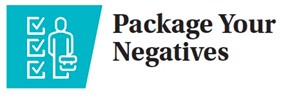
Many candidates have some shortcoming or weakness within their career history. Maybe you have had a three-month gap in employment or maybe your formal management experience is lacking. Whatever the issue is, be prepared to address it. Plan out in advance how you are going to explain the issue should it come up in the interview. It’s best to keep your explanation brief. Cover it quickly and move on to the next topic.
––––––––––––––––––––––––––––––––––––––––––––––––––––––––––––––––––––––––––
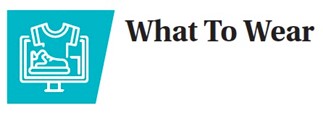
Keep your attire neutral and conservative. Remember to dress for the job you want, not the job you have. Even if you are interviewing for a customer service job behind a desk and a phone, you still want to project potential for upward mobility and the best way to ensure that is to show the hiring manager, right off the bat, that you’re a professional.
Since you will likely be interviewing at least once via video conference, rather than in a hiring manager’s office, don’t assume appearance isn’t important. You still need to dress to impress. If you look professional, you will feel and act professional as well. Also, be mindful of your environment on video calls. Choose the quietest, most peaceful room in your home to avoid interruptions. In that room, position yourself toward a window so that your face is well lit. If that’s not possible, purchase a ring light made for video conference calls to ensure adequate lighting so your face and expressions can be seen clearly. What others see on their end of the video call is your first impression. Make it a great one.
––––––––––––––––––––––––––––––––––––––––––––––––––––––––––––––––––––––––––

Bring extra copies of your resume in some type of folder to keep them clean and neat. Bring a notepad or professional binder and a pen.
––––––––––––––––––––––––––––––––––––––––––––––––––––––––––––––––––––––––––

Sit up straight and don’t fidget. Manage how you react to the interviewer and do your best to keep your facial expressions positive. Make it clear that you’re actively listening to your interviewer by maintaining good eye contact. Remember that making a good first impression starts when you drive into the parking lot, so be friendly to everyone you see and meet.
––––––––––––––––––––––––––––––––––––––––––––––––––––––––––––––––––––––––––
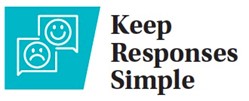
Be sure not to over-share. Keep your answers short and concise. Speak clearly and with meaning. You don’t need to use big words in your interview. Just speak to what you know and be yourself.
––––––––––––––––––––––––––––––––––––––––––––––––––––––––––––––––––––––––––
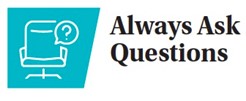
Every interview ends with “Do you have any questions for me?” Yes, you should have questions. Write them down beforehand in your notebook and jot down additional questions as they come to mind during the interview. Here are a few that you’ll definitely want to ask:
- “Do you have any doubts about my ability to perform this job?”
- “What do you expect of someone within the first 90 days of taking this position?”
- “What’s the most important deliverable this position will be responsible for?”
- “When will I hear from you regarding next steps?”
One important note: don’t ask about compensation, benefits or paid time off in the first interview.
––––––––––––––––––––––––––––––––––––––––––––––––––––––––––––––––––––––––––
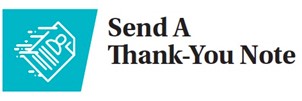
Send a “thank you” note or email to the person or people with whom you interviewed. Be sure to reiterate again why you want the position and why you feel you would be an asset to the company. This can make you stand out from all other candidates because this is the one step most people forget. I’ve seen it make the difference between getting the job or not.
The in-person job interview doesn’t have to be stressful or nerve-wracking. Be confident in yourself and your abilities. Believe in yourself, prepare diligently and you’ll stand out from the pack.
––––––––––––––––––––––––––––––––––––––––––––––––––––––––––––––––––––––––––

Most employers will ask you to provide at least three references. Picking the right references and asking those people to be a reference can be a task in and of itself. Here’s how to tackle this process effectively and professionally.
- Choose people who will give you an exceptional reference—people with whom you’ve had positive experiences
- Ask the question delicately and give the person the opportunity to decline if they feel they would not be able to give you an outstanding reference
- Provide your references with all the pertinent information about the position, company and who will be contacting them
- Put your request in writing
- Say thank you
The job search process is challenging on many levels. It is emotionally, mentally and psychically demanding. However, the process is manageable. By creating small, daily goals for yourself, treating the search like a full-time job and focusing only on what you control, you can turn the process into a positive and successful one. Focus on catching the eye of industry hiring managers and impressing him or her with preparation, skills and professionalism.
––––––––––––––––––––––––––––––––––––––––––––––––––––––––––––––––––––––––––
Patrick McHargue (patrick@promoplacement.com) is director of talent at PromoPlacement, a recruiting firm focused on the promotional products industry. He grew up in the industry, earned an MBA in international business and managed a $35 million sales territory before focusing on the development of tools and services to benefit the promotional products industry.

